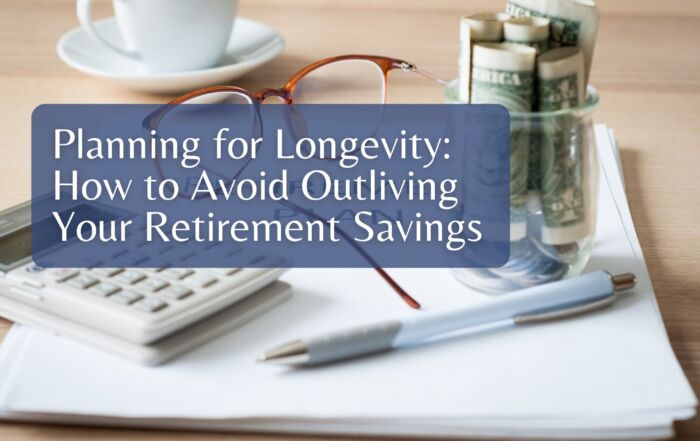7 Social Security Mistakes to Avoid

We have covered in previous blogs several ways to maximize social security benefits. This has included such topics as determining the optimal age for claiming benefits so that you increase can your lifetime payments and, ultimately, the probability of financial success in retirement. However, let’s now discuss common social security mistakes you should avoid along the way.
1. Not Checking Earnings Record
The primary insurance amount (or PIA) is based on wage history of highest 35 years of earnings. It is important to double check that those amounts are correct, and that each year you worked is counted accurately as years with no earning history will be recorded as $0. Your PIA once you reach your Full Retirement age (or FRA) age needs to be accurate so you can make the most informed decisions about claiming social security benefits. You can go online to ssa.gov to log in or set up an account and verify your earnings record.
2. Decreasing Wages
Business owners can have lower W-2 incomes as a way to reduce taxes upfront. While this is important and usually discussed with a CPA, it’s still good to make sure that you are thinking through how much you’re paying into social security. Not maximizing social security benefits on the front end can be a costly mistake when it is too late to prepare closer to retirement. An increased social security amount in perpetuity throughout retirement can be beneficial to supplementing retirement goals.
3. Claiming Social Security Early
The tempting offer of receiving a monthly income as early as 62 entices many people and can be tough to turn down. After all, you have paid over 35 of your working years into the system and you would now like a return on that submitted income. However, claiming early can significantly decrease your lifetime benefit as well as your financial success, causing you to withdraw more from your portfolios. It has been coined as “longevity insurance” and if claimed at 62 vs 70, this could possibly reduce monthly benefit eligible by at least 76%. From 62 to your FRA, the amount will increase about 8% per year up to age 70. However, if you know you have health concerns or no family history of extended longevity, then it might make since to claim at FRA and not 70. The breakeven is usually around your late 70s or 80s. If you want more information on how to determine at what age you should start claiming benefits, see our recent blog on when to take social security.
4. Not Maximizing Survivor Benefits
If one spouse passes away earlier than expected, many times the surviving spouse does not understand the options available to them through social security. Surviving spouses can claim social security as early as age 60. If they can go ahead and apply for survivor benefits, they can still wait until 70 to claim their own benefits if this amount is larger. Usually, it will be anywhere from 71.5% to 99% of the FRA amount. However, if the surviving spouse’s benefits are less, then they would first claim their own benefits at 62 and then switch to the higher amount in survivor benefits later on at FRA or age 70.
5. Claiming While Still Working
If you are working and earning more than $18,960 in 2021 but also claiming benefits before your FRA of 67, your benefits will be reduced by $1 for every $2 of income. If you wait to claim, it could jump up to $1 for every $3 once you reach FRA. While you can eventually get some money back and your benefits are adjusted once you reach full retirement age, usually the best method is to rely solely on your income for your lifestyle while you’re still earning a wage and claim later once you stop earning to allow your benefits to increase in the future.
6. Waiting Past 70 Years Old to Claim
Many times, people decide either they need to keep working to supplement their lifestyle or to keep saving for their future retirement goals. But they also might be unaware that they still need to at least apply for social security by age 70. The result is that some people end up filing for social security after age 70. If this is the case for you, you need to file as soon as possible. Social security will pay up to six months’ worth of retroactive benefits, but filing asap can also help you avoid losing out on money simply because you did not file within the designated time frame.
7. Delaying to Age 70 for Spousal Benefit
Spouses should wait until FRA to get their full benefit amounts and avoid reduced payments. However, spousal benefits do not apply additional credits from age 67-70. If you claim them at 62, the amount will be just 32% of your spouse’s benefit as opposed to 50% for spousal benefit if wait until FRA.
Avoiding Social Security Mistakes
As you can see, there are various ways to optimize social security in retirement. Part of what makes it seem complicated is that it can depend greatly on individual personal circumstances. This is not a one size fits all system. It is important to avoid rash filing decisions at 62 or 67 simply out of a feeling of urgency because you have paid into the system for so long. Also, learn as much as you can about the system in order to avoid the various errors or faulty assumptions that are all too easy to make along the way. Take the time to run scenarios and look at not just what provides the most benefits throughout your life or your spouse’s, but also what increases your probabilities of success in retirement.
Matthews Barnett, CFP®, ChFC®, CLU®
Financial Planning Specialist
Share This Story, Choose Your Platform!
Wiser Wealth Management, Inc (“Wiser Wealth”) is a registered investment adviser with the U.S. Securities and Exchange Commission (SEC). As a registered investment adviser, Wiser Wealth and its employees are subject to various rules, filings, and requirements. You can visit the SEC’s website here to obtain further information on our firm or investment adviser’s registration.
Wiser Wealth’s website provides general information regarding our business along with access to additional investment related information, various financial calculators, and external / third party links. Material presented on this website is believed to be from reliable sources and is meant for informational purposes only. Wiser Wealth does not endorse or accept responsibility for the content of any third-party website and is not affiliated with any third-party website or social media page. Wiser Wealth does not expressly or implicitly adopt or endorse any of the expressions, opinions or content posted by third party websites or on social media pages. While Wiser Wealth uses reasonable efforts to obtain information from sources it believes to be reliable, we make no representation that the information or opinions contained in our publications are accurate, reliable, or complete.
To the extent that you utilize any financial calculators or links in our website, you acknowledge and understand that the information provided to you should not be construed as personal investment advice from Wiser Wealth or any of its investment professionals. Advice provided by Wiser Wealth is given only within the context of our contractual agreement with the client. Wiser Wealth does not offer legal, accounting or tax advice. Consult your own attorney, accountant, and other professionals for these services.





